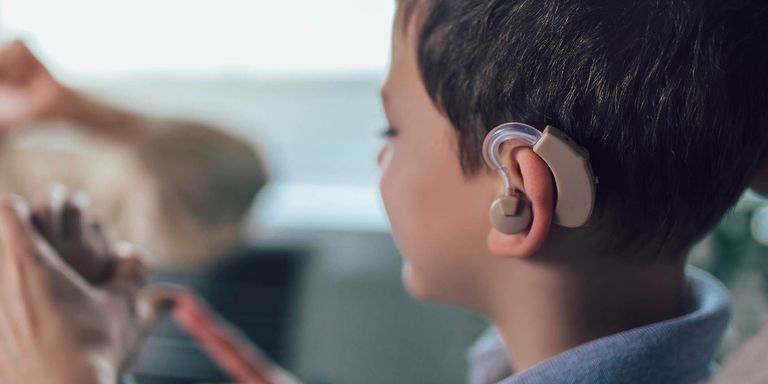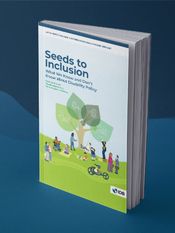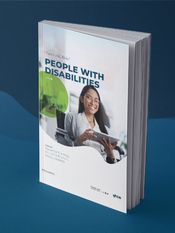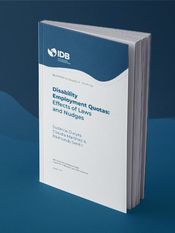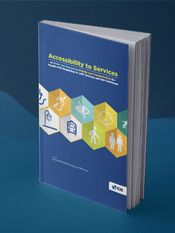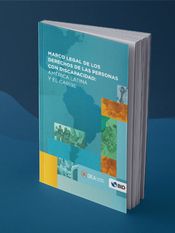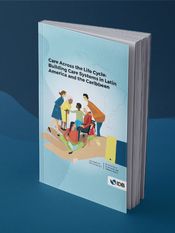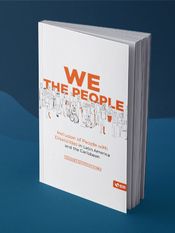Projeta-se que a população com deficiência na ALC aumente de 15% da população total em 2020 para 20% em 2050. Isso representa um aumento de aproximadamente 88 milhões para 150 milhões de pessoas. Apesar de marcos legais robustos, as pessoas com deficiência enfrentam barreiras à inclusão que perpetuam as lacunas sociais e econômicas e limitam a autonomia.
Dentro da ALC, todos os países do BID ratificaram a Convenção das Nações Unidas sobre os Direitos das Pessoas com Deficiência, que serve como um roteiro para programas e políticas. Seguindo essa estrutura, a abordagem do BID para a inclusão de pessoas com deficiência se concentra na eliminação de barreiras que incluem infraestrutura inacessível, serviços que não são inclusivos, fragmentação de programas, atitudes dos prestadores de serviços, bem como a falta de dados para poder desenhar políticas. As linhas de ação incluem apoio à educação inclusiva, identificação precoce e certificação de deficiências, inclusão econômica, infraestrutura acessível, esportes adaptativos e acessibilidade digital. A inclusão de pessoas com deficiência está acontecendo em todo o BID, com mais de 60 projetos atendendo aos critérios de integração nos últimos 3 anos.
The IDB continues to advance disability inclusion across its portfolio, with an increasing number of projects integrating actions to close gaps between people with and without disabilities.

means fostering inclusive education, early screening, labor market participation, and shifting mindsets. These efforts create opportunities that strengthen the autonomy and productivity of persons with disabilities while advancing social equity and economic growth.
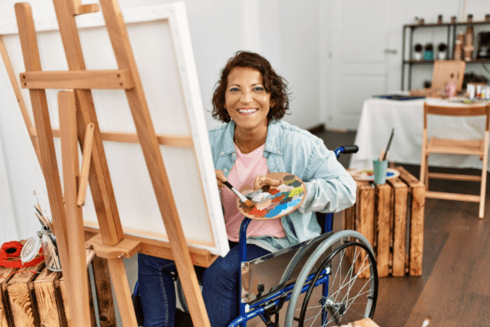
ensure people with disabilities can make their own decisions and fully participate in societies and the economies. By promoting accessible certification processes, inclusive care policies, and caregiver support, these systems strengthen independence and inclusion.
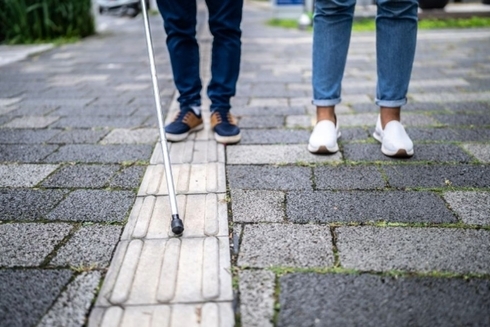
means incorporating accessibility from the start. Planning for diverse needs upfront, creates more efficient and cost-effective solutions.
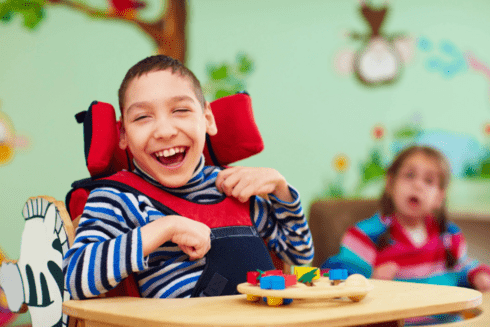
Early identification
The early identification of disabilities is important to ensure that children receive the appropriate services and assistive technologies they need to develop their potential and participate fully in all aspects of life. The IDB supports countries in implementing early screening initiatives.
Inclusive education
Inclusive education is key to ensuring that all children can access quality learning opportunities, participate fully in the classroom, and reach their potential. Evidence shows that it also builds a more skilled workforce and a stronger economy. The IDB supports countries in removing the barriers that prevent students with disabilities from thriving in school.

Labor market inclusion
Expanding access to quality employment is key to advancing the economic participation and autonomy of people with disabilities. The IDB works with countries to remove the barriers and support the full participation of persons with disabilities in quality jobs.
Read: Employment opportunities in Chile
Expanding opportunities and changing mindsets
Sports have potential benefits at both the individual and societal levels. They help open opportunities and shift perceptions about disability.

Assessment and certification of disabilities
A disability certificate is a voluntary administrative procedure that is often a prerequisite for accessing social services. Reliable and accessible certification processes reduce transaction costs and allow persons with disabilities to demonstrate their eligibility for programs without facing unnecessary bureaucratic barriers or stigmatization.
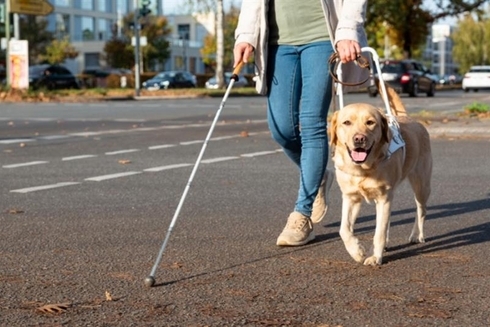
Care Policy
In consideration of the rapid aging of the population and the disproportionate burden of unpaid care work carried by women, governments in the region are developing care systems to respond to demographic shifts and address the growing need for care across diverse populations. People with disabilities are a key focus of these systems, while many live independently, a sub-population requires assistance to carry out daily activities. In addition, caregivers themselves may also have disabilities. Women continue to provide most unpaid care for family members with disabilities. Two services are central to supporting people with disabilities with functional dependence: personal assistance programs and center-based programs. Policy design also recognizes the importance of enabling caregivers to remain active in the labor force.
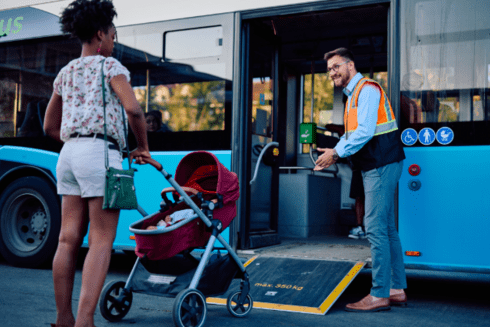
Universal design
Rather than making ex-post adjustments which can often be costly, the universal design approach plans for the needs of a diverse population from the outset, such that the final product will be accessible and user-friendly to a diverse population.
Read: Supporting accessible public transportation in Ecuador
Read: Inclusive planning for accessible cable car stations in Bolivia
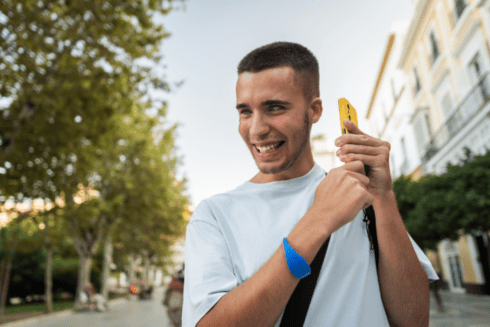
Accessible digital platforms
The overall lack of information about the accessibility of public infrastructure in the region limits the use of public services by people with disabilities.
Discover: Citizen-powered data for more accessible cities in Latin America
Learn: Improving digital accessibility to meet international standards

Early identification
The early identification of disabilities is important to ensure that children receive the appropriate services and assistive technologies they need to develop their potential and participate fully in all aspects of life. The IDB supports countries in implementing early screening initiatives.
Inclusive education
Inclusive education is key to ensuring that all children can access quality learning opportunities, participate fully in the classroom, and reach their potential. Evidence shows that it also builds a more skilled workforce and a stronger economy. The IDB supports countries in removing the barriers that prevent students with disabilities from thriving in school.

Labor market inclusion
Expanding access to quality employment is key to advancing the economic participation and autonomy of people with disabilities. The IDB works with countries to remove the barriers and support the full participation of persons with disabilities in quality jobs.
Read: Employment opportunities in Chile
Expanding opportunities and changing mindsets
Sports have potential benefits at both the individual and societal levels. They help open opportunities and shift perceptions about disability.

Assessment and certification of disabilities
A disability certificate is a voluntary administrative procedure that is often a prerequisite for accessing social services. Reliable and accessible certification processes reduce transaction costs and allow persons with disabilities to demonstrate their eligibility for programs without facing unnecessary bureaucratic barriers or stigmatization.

Care Policy
In consideration of the rapid aging of the population and the disproportionate burden of unpaid care work carried by women, governments in the region are developing care systems to respond to demographic shifts and address the growing need for care across diverse populations. People with disabilities are a key focus of these systems, while many live independently, a sub-population requires assistance to carry out daily activities. In addition, caregivers themselves may also have disabilities. Women continue to provide most unpaid care for family members with disabilities. Two services are central to supporting people with disabilities with functional dependence: personal assistance programs and center-based programs. Policy design also recognizes the importance of enabling caregivers to remain active in the labor force.

Universal design
Rather than making ex-post adjustments which can often be costly, the universal design approach plans for the needs of a diverse population from the outset, such that the final product will be accessible and user-friendly to a diverse population.
Read: Supporting accessible public transportation in Ecuador
Read: Inclusive planning for accessible cable car stations in Bolivia

Accessible digital platforms
The overall lack of information about the accessibility of public infrastructure in the region limits the use of public services by people with disabilities.
Discover: Citizen-powered data for more accessible cities in Latin America
Learn: Improving digital accessibility to meet international standards
Descubra os Tópicos em que trabalhamos para melhorar vidas na América Latina e no Caribe.
Explore as nossas representações nos diferentes países e o trabalho que realizam para melhorar vidas.
